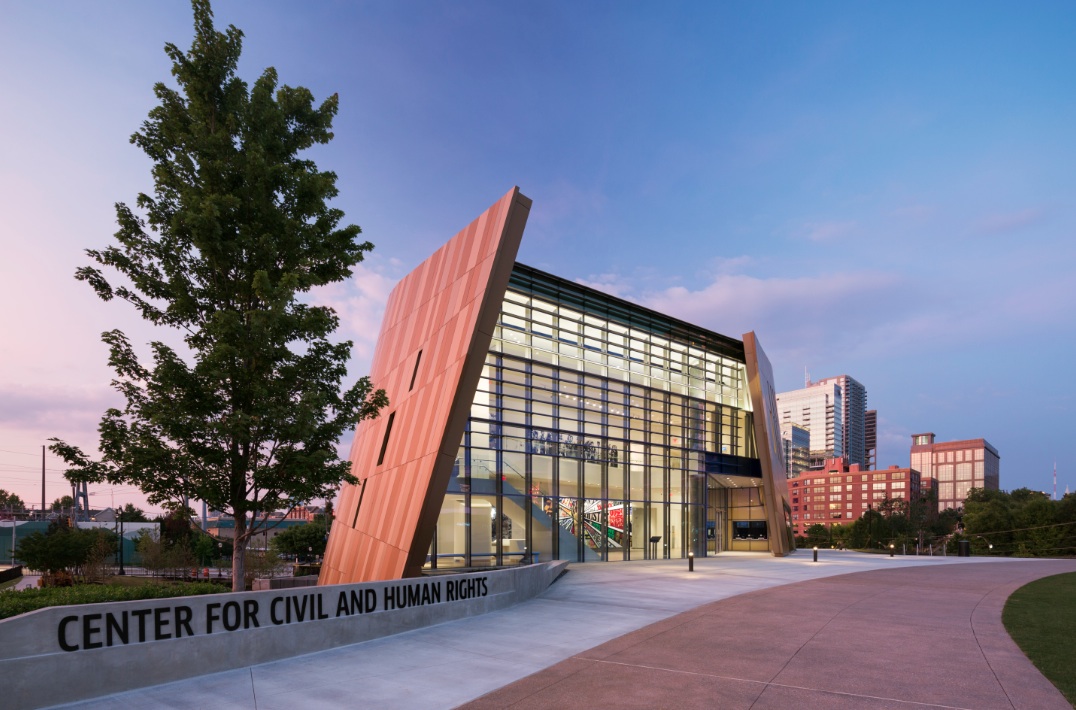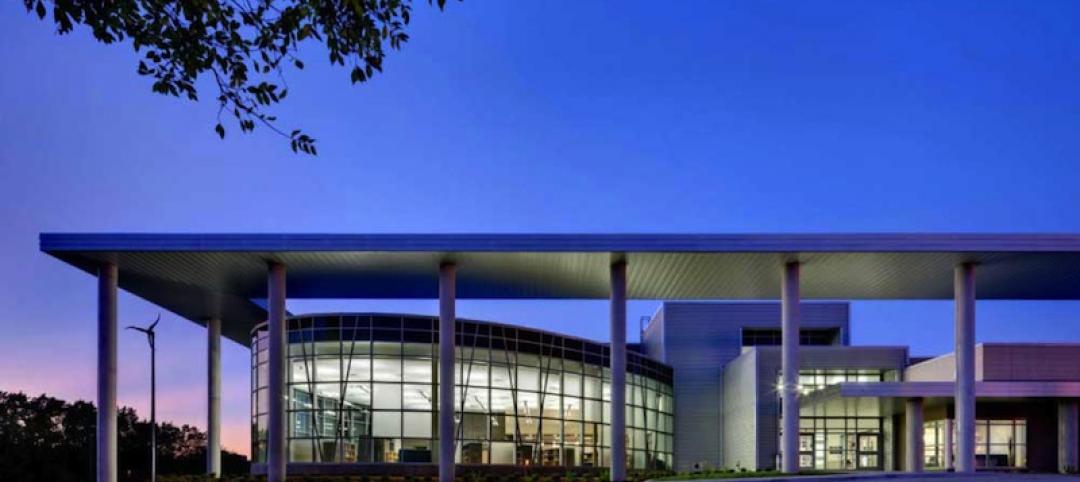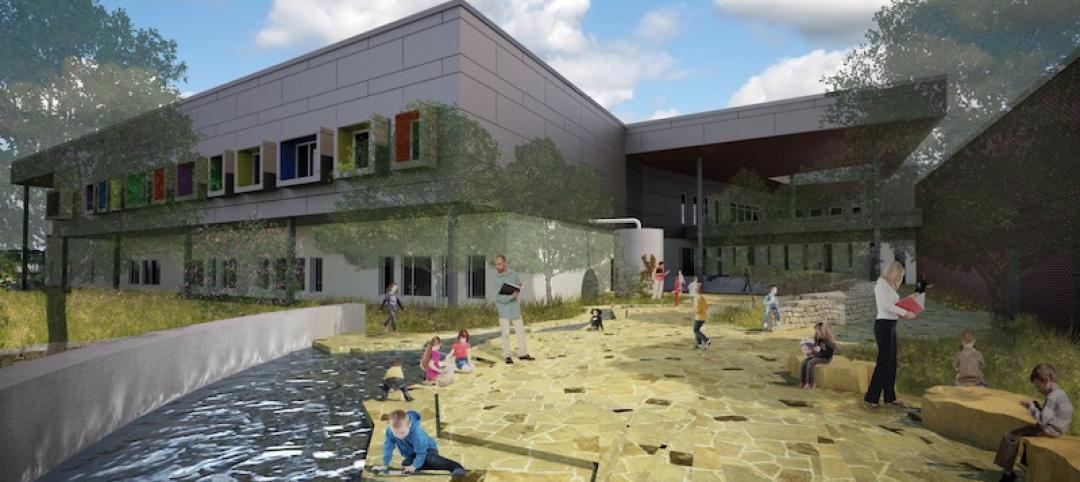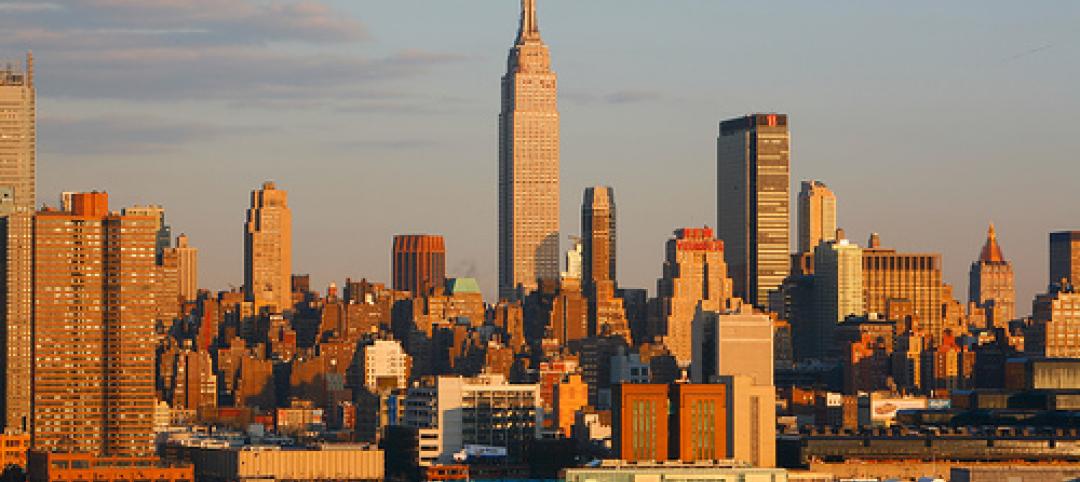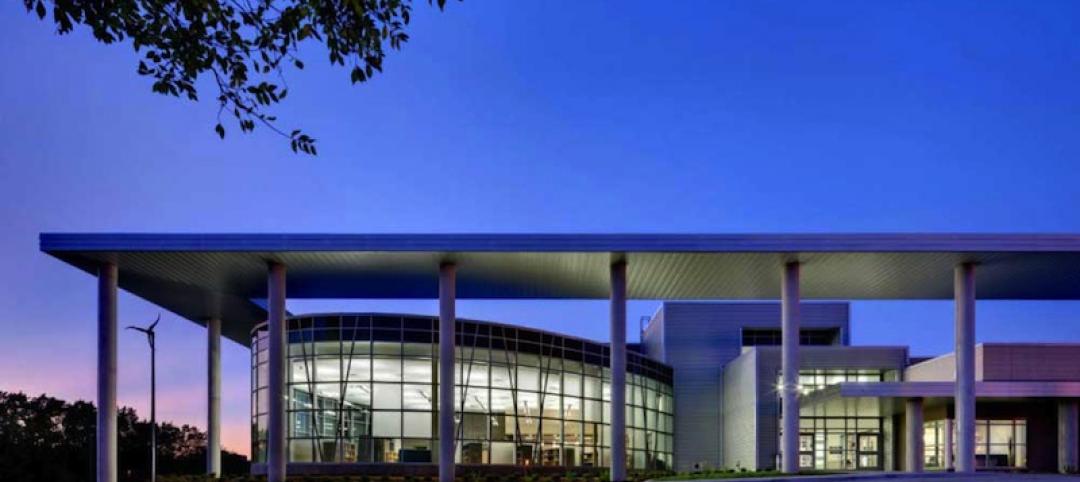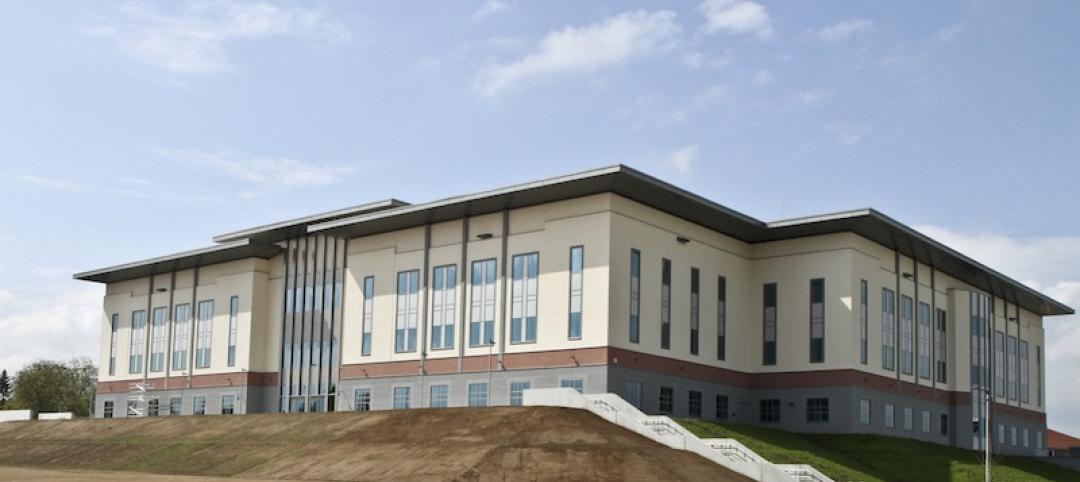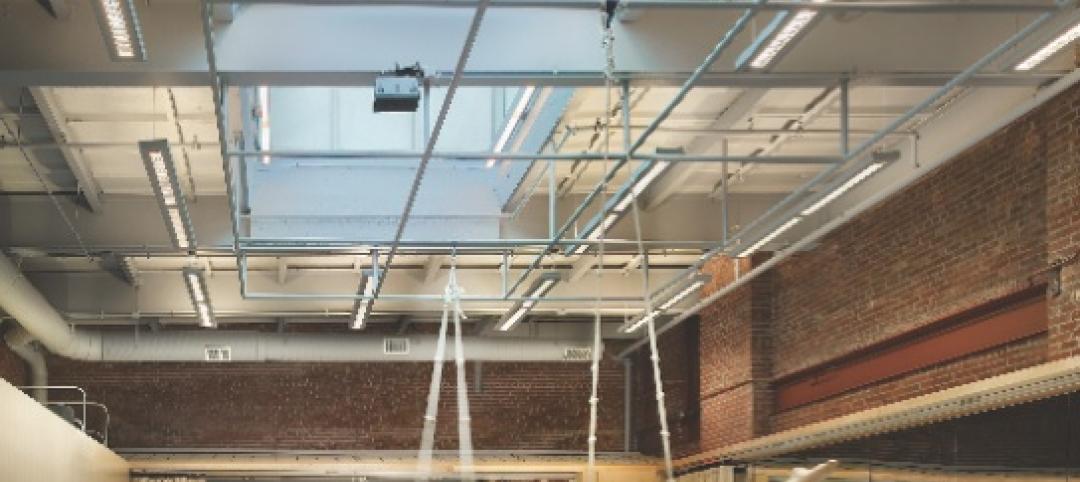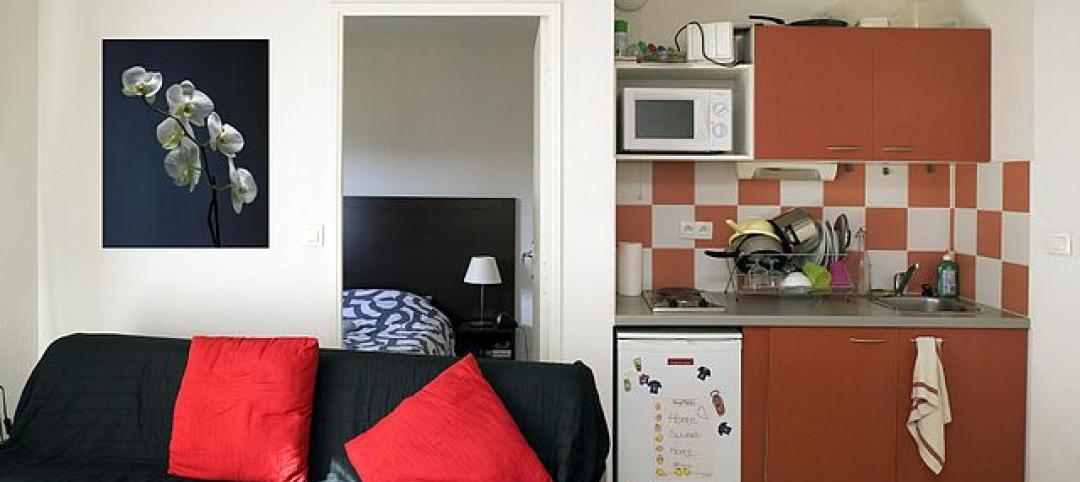Now in its fifth year, the per-capita list is based on 2010 U.S. Census data and includes commercial and institutional green building projects that were certified throughout 2014. Illinois retained its top national position for the second year in a row, with 174 LEED certifications representing 3.31 square feet of LEED-certified space per resident.
Two newcomers to the list, Georgia and Arizona, show that 2014 was a year of major growth for LEED in the South and Southwest regions of the country, while the continued strong performance of Washington, D.C., Maryland and Virginia have helped the mid-Atlantic region remain the epicenter of green building across the country. Washington, D.C., which is not included on the official list of top states due to its status as a federal territory, is notable as it continues to lead the nation with 29.44 square feet of space per resident certified in 2014. Maryland and Virginia finished third and fourth respectively, and both states increased their per capita totals to 2.70 and 2.33 square feet of LEED space per resident in 2014.
The 2014 list had the highest average (2.34) of per capita space certified per resident per state since 2010, and the second highest average to date. Six of the eight states (Ill., Colo., Md., Va., Mass., and Hawaii), which were also on the list in 2013, increased the amount of square feet of space they certified per resident in 2014. Illinois and Colorado are the only two states to make the list every year since 2010.
The full ranking is as follows:

USGBC calculates the list using per-capita figures as a measure of the human element of green building, allowing for a fair comparison of the level of green building taking place among states with significant differences in population and, accordingly, number of overall buildings.
In 2014, LEED for Building Operations and Maintenance was once again the most popular rating system within the top 10 states, representing 48 percent of the total square footage certified. LEED for Building Design and Construction was the second most popular rating system in the top 10, representing 46 percent of the square footage certified and LEED for Interior Design and Construction was the third most popular rating system, representing 6 percent of total square footage certified in these states in 2014.
A sample of notable projects that certified in these states in 2014 include:
- Illinois: The Aon Center, a 3.2 million-square-foot tower in Chicago owned by Jones Lang LaSalle, LEED Silver
- Colorado: Denver Museum of Nature & Science’s Morgridge Family Exploration Center in Denver, LEED Platinum
- Maryland: NASA Goddard Space Flight Center Building 26 in Greenbelt, LEED Gold
- Virginia: University of Mary Washington’s Technology Convergence Center in Fredericksburg, LEED Silver
- Massachusetts: Winchester Hospital Ambulatory Surgery Center in Winchester, LEED Gold
- Hawaii: City Financial Tower in Honolulu, LEED Gold
- California: Levi's Stadium in Santa Clara, LEED Gold
- Georgia: The Georgia World Congress Center in Atlanta, LEED Silver
- Minnesota: Wells Fargo Center in Minneapolis, LEED Gold
- Arizona: Arizona State University Health Services renovation in Tempe, LEED Platinum
- New York: Golisano Institute for Sustainability at the Rochester Institute of Technology in Rochester, LEED Platinum
Collectively, 1,662 commercial and institutional projects became LEED certified within the top 10 states in 2014, representing 251.7 million square feet of real estate. Worldwide, 4,502 projects were certified in 2014, representing 675.7 million square feet.
More than 26,600 projects representing 3.6 billion square feet of space have been LEED-certified to date, with another 42,000 projects representing 8.8 billion square feet in the pipeline for certification. USGBC launched LEED v4, the newest version of the rating system, in the fall of 2013. The latest version continues to raise the bar for the entire green building industry, which Forbes Magazine projects could be worth up to $960 billion globally by 2023. LEED v4 features increased technical rigor; new market sector adaptations for data centers, warehouses and distribution centers, hospitality, existing schools, existing retail and midrise residential projects; and a simplified submittal process supported by a robust and intuitive technology platform.
Related Stories
| Dec 17, 2013
Nation's largest net-zero K-12 school among winners of 2013 Best of Green Schools award
The Lady Bird Johnson Middle School in Irving, Texas, was named a winner of USGBC's annual award, along with nine other schools, individuals and communities working toward the common goal of healthy, high-performing learning places.
| Dec 16, 2013
Irving, Texas building state’s second net-zero school
Lee Elementary School, scheduled to open in fall 2014, will be net-zero-ready, and if the school board decides to sell district bonds and allow the purchase of additional solar panels, will be a true net-zero facility.
| Dec 10, 2013
16 great solutions for architects, engineers, and contractors
From a crowd-funded smart shovel to a why-didn’t-someone-do-this-sooner scheme for managing traffic in public restrooms, these ideas are noteworthy for creative problem-solving. Here are some of the most intriguing innovations the BD+C community has brought to our attention this year.
| Dec 9, 2013
What is life cycle cost optioneering?
Life cycle cost optioneering is a way of assessing alternative design options, analyzing their long-term capital and operational costs to identify those with the lowest price tag, over the entire life cycle.
| Dec 9, 2013
Skaneateles, N.Y., converts old firehouse to net-zero village hall
The Finger Lakes village of Skaneateles, N.Y., renovated its vacant firehouse into Skaneateles Village Hall, the first municipal net-zero energy building in the state of New York.
| Dec 2, 2013
Security is key component of Army’s net-zero assessment strategy
For the U.S. Army, creating secure sources of energy is an important driver for its net zero goals. Critical military missions are at a high risk of failure in the event of an electric grid failure, according to a Defense Science Board report.
| Nov 27, 2013
LEED for Healthcare offers new paths to green
LEED for Healthcare debuted in spring 2011, and certifications are now beginning to roll in. They include the new Puyallup (Wash.) Medical Center and the W.H. and Elaine McCarty South Tower at Dell Children’s Medical Center of Central Texas in Austin.
| Nov 27, 2013
University reconstruction projects: The 5 keys to success
This AIA CES Discovery course discusses the environmental, economic, and market pressures affecting facility planning for universities and colleges, and outlines current approaches to renovations for critical academic spaces.
| Nov 25, 2013
New California codes moving state toward net-zero requirements
Under the new Title 24, all new residential construction must be net zero by 2020, with all new commercial buildings achieving this goal by 2030.
| Nov 22, 2013
Health Product Declaration Collaborative to develop protocol for third-party verification of HPDs
Seven leading product sustainability assessment companies partner with the HPD Collaborative to develop the verification and quality assurance protocols.


